Moses was born in Egypt on the 7th of Adar of the year 2368 from creation (1393 BCE) and passed away on his 120th birthday -- Adar 7, 2488 (1273 BCE)
Links:
A brief biography
The Birth of a Leader
The Head
Moses Disappears
More on Moses
The Inquisition was created in the twelfth century to find "Christian heretics" who would be punished or killed. Eventually, Jews too were open to such charges of heresy, simply for being Jewish; and torture was routinely used to extract "confessions." Over the years, the inquisition, which operated with Papal consent, spread to many countries.
In 1481 the Inquisition began to function in Spain to expose the secret Jews, known as the Anusim or Marranos. This Inquisition was anti-Jewish more than in any previous countries. The first public sentencing and burning alive of six Jewish men and one woman by the Spanish Inquisition was held on this date in Seville in Southern Spain.
Following the start of the Spanish Inquisition many Jews fled Spain (see "Today in Jewish History" for Sivan 4).
Born in the year 1550 in Luntschitz, Poland, with just the name Ephraim, the name Sholomo was added later during a life-threatening illness (a common practice in Judaism).
Rabbi Sholomo Efraim was a disciple of the famed
Talmudist,
In the year 1604, after having first headed the yeshivah in Levov, he was appointed rabbi of Prague, replacing Rabbi Lowe, who was then quite elderly. He held the position until his passing.
He is the author of a number of works, but is perhaps best known for his work Kli Yakar (a commentary on the Torah) and Olelot Ephraim (a collection of sermons).
While most say he passed away on 7 Adar II, some records have 7 Iyar as the correct date.
Among his prominent students was Rabbi Yom Tov Lipman Heller, author of a classic commentary on the Mishnah called Tosfot Yom Tov.
On December 12, 1941, the Struma ship set off from the port of Constanta, Romania, carrying 800 Jewish Romanian refugees headed for British Mandatory Palestine. The ship was detained at Istanbul, where British authorities refused to allow the ship to continue to its destination. On February 23, 1942, Turkish authorities towed the ship out to the Black Sea, where it drifted aimlessly due to a failed engine. The next day, the ship was sunk by a Soviet submarine. Only one passenger survived the horrific disaster.
The Chevrah Kadisha (Jewish Burial Societies) hold their annual get-together and feast on Adar 7th. This is based on the tradition that G-d Himself buried Moses on this day -- granting them a respite from their labors.
Once a month, as the moon waxes in the sky, we recite a special blessing called Kiddush Levanah, "the sanctification of the moon," praising the Creator for His wondrous work we call astronomy.
Kiddush Levanah is recited after nightfall, usually on Saturday night. The blessing is concluded with songs and dancing, because our nation is likened to the moon—as it waxes and wanes, so have we throughout history. When we say this blessing, we renew our trust that very soon, the light of G‑d's presence will fill all the earth and our people will be redeemed from exile.
Though Kiddush Levanah can be recited as early as three days after the moon's rebirth, the kabbalah tells us it is best to wait a full week, till the seventh of the month. Once 15 days have passed, the moon begins to wane once more and the season for saying the blessing has passed.
Links:
Kiddush Levana: Sanctification of the Moon
Brief Guide to Kiddush Levanah: Thank G‑d for the Moon!
There is always reason to celebrate.
If you did good, celebrate that you have a G‑d who is there with you in your good work.
And if you fell on your face, celebrate that you have a G‑d who carries you when you fall.
